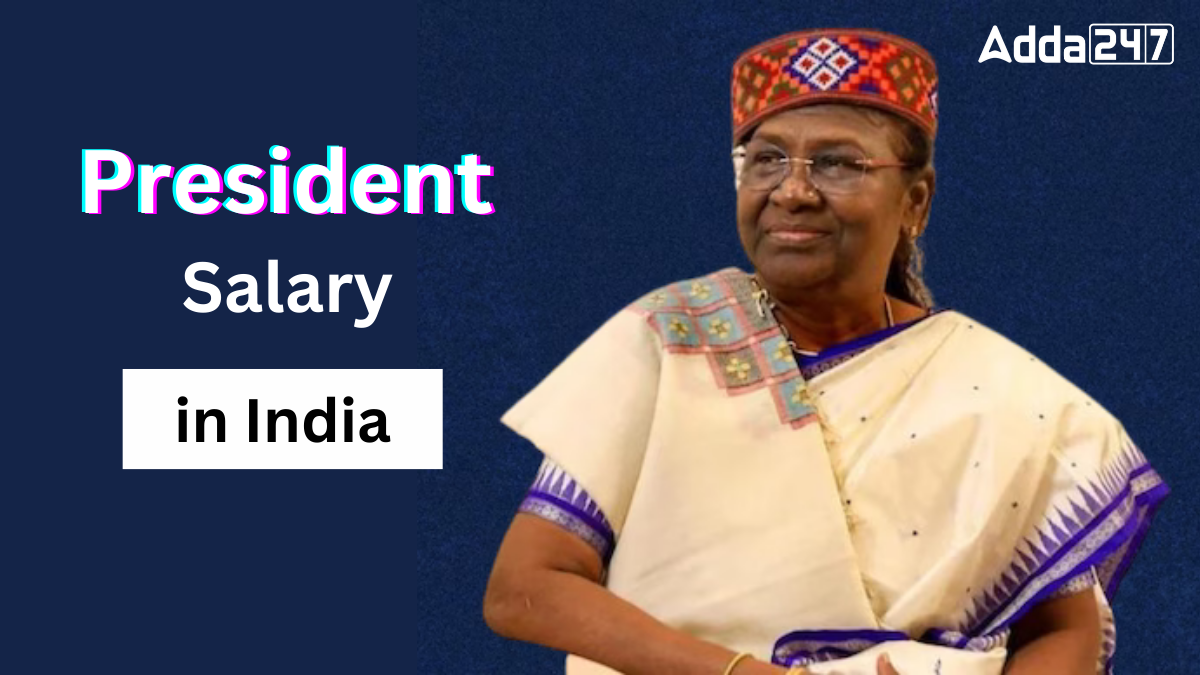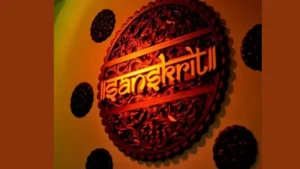Salary of President of India 2023
The President of India is considered as the head of the country or the first person of the country. The President of India receives a salary of 5 lakh, equivalent to 5.9 lakh in 2023, as per India’s Union Budget. This article explores the salary of the President of India, encompassing all associated compensation and benefits.
Salary of President of India in Rupees
On September 11, 2008, the Indian government augmented the president’s salary to 1.5 lakh rupees, equivalent to approximately 3.9 lakh in 2022. Subsequently, in India’s 2018 Union Budget, this compensation saw a further increase to 5 lakh, reaching an equivalent of 5.9 lakh in 2023. The President of India serves as both the symbolic head of state and the commander-in-chief of the Indian Armed Forces, holding a position of paramount importance in the Republic of India.
President Salary in India Per Month
The President of India receives a monthly salary of Rs.5 lakh, which is not subject to taxes. Additionally, the President is entitled to various allowances. Here are some of the allowances provided to the President of India other than the salary:
- Residence: The official home of the President is Rashtrapati Bhavan, located in the heart of New Delhi. This iconic residence, situated on elevated hills, boasts 340 rooms and covers a vast floor area of 2,00,000 square feet.
- Medical Benefits: As a crucial figure in the nation, the President is provided with lifetime access to free medical services.
- Security: Given the President’s vital role and importance, a custom-built Black Mercedes Benz S600 (W221) Pullman Guard is at their disposal. This heavily armored vehicle is used for official visits, complemented by a stretch limousine for added security. The motorcade also includes a former presidential car, a black Mercedes-Benz W140.
Who is the President of India?
The inception of the Indian President’s office coincided with India becoming a republic on January 26, 1950. The selection of the President involves an indirect electoral process through a diverse body known as the electoral college. This college includes members from both houses of Parliament, as well as representatives from the legislative assemblies of each state and union territory. These members are directly elected by the citizens of their respective regions.
The President of India holds the significant powers, including the appointment of the prime minister, governors and judges as well as representing India on the international stage. According to Article 53 of the Indian Constitution, the day-to-day executive powers are exercised by the Prime Minister and Cabinet. However, the President’s final approval, marked with a signature, is essential for the implementation nationwide. Additionally, on crucial occasions, the President addresses the nation and has the authority to grant pardons and reprieves.
As of July 25, 2022, Droupadi Murmu is the 15th and current President of India.
Eligibility of India’s President
To become the President of India, certain criteria must be met, as per Article 58 of Indian Constitution. Here are the simple requirements to become the President of India:
- The person must be a citizen of India.
- The individual should be 35 years of age or older.
- They need to be eligible to become a member of the Lok Sabha.
However, there is a disqualification clause: If someone holds a profit-making position under the Government of India, a State Government or any local authority, they cannot run for president.
Some exceptions are:
- The current Vice President
- Governors of States
- Union or state ministers, including the Prime Minister and Chief Ministers
Term of India’s President
The President of India serves a five-year term and can continue in office beyond the completion of this term if no new election occurs or a successor is not elected. Additionally, there is no limit to the number of times the President can be re-elected.
Roles and Responsibilities of President of India
The President of India holds a significant role with various fields duties:
- Head of the State: The President is the leader of the country and the top commander of the Indian Armed Forces.
- Upholding Constitution and Laws: Safeguarding and ensuring India’s constitution and laws is the President’s foremost responsibility.
- Qualifications and Residency: The President must be an Indian citizen, at least 35 years old and without any conflicting government interests. They reside in Rashtrapati Bhavan in New Delhi.
- Vacancy and Succession: If the President is no longer in office due to death, resignation, removal, impeachment or term limits, the position may become vacant.
- Authority in Various Spheres: The President has power in official, legal, diplomatic and military matters, making crucial decisions with advice from the Prime Minister and the Council of Minister.
- Check on Parliament: The President uses sacred powers to keep the Lok Sabha, the lower house of Parliament, in check.
- Compensation: The President receives a monthly salary of Rs. 5 lakh, along with additional allowances and benefits.
Functions of President of India
The President of India possesses a range of powers and functions, including legislative, executive, financial, military, judicial and pardoning powers, enabling effective management of national and international affairs. The President’s ability to veto, issue of ordinances and grant pardons holds significantly importance in various circumstances.
Find More General Studies News Here




 Which Country is known as the Land of Mo...
Which Country is known as the Land of Mo...
 Which Languages is known as the Mother o...
Which Languages is known as the Mother o...
 Which Country is known as the Highest Pr...
Which Country is known as the Highest Pr...








